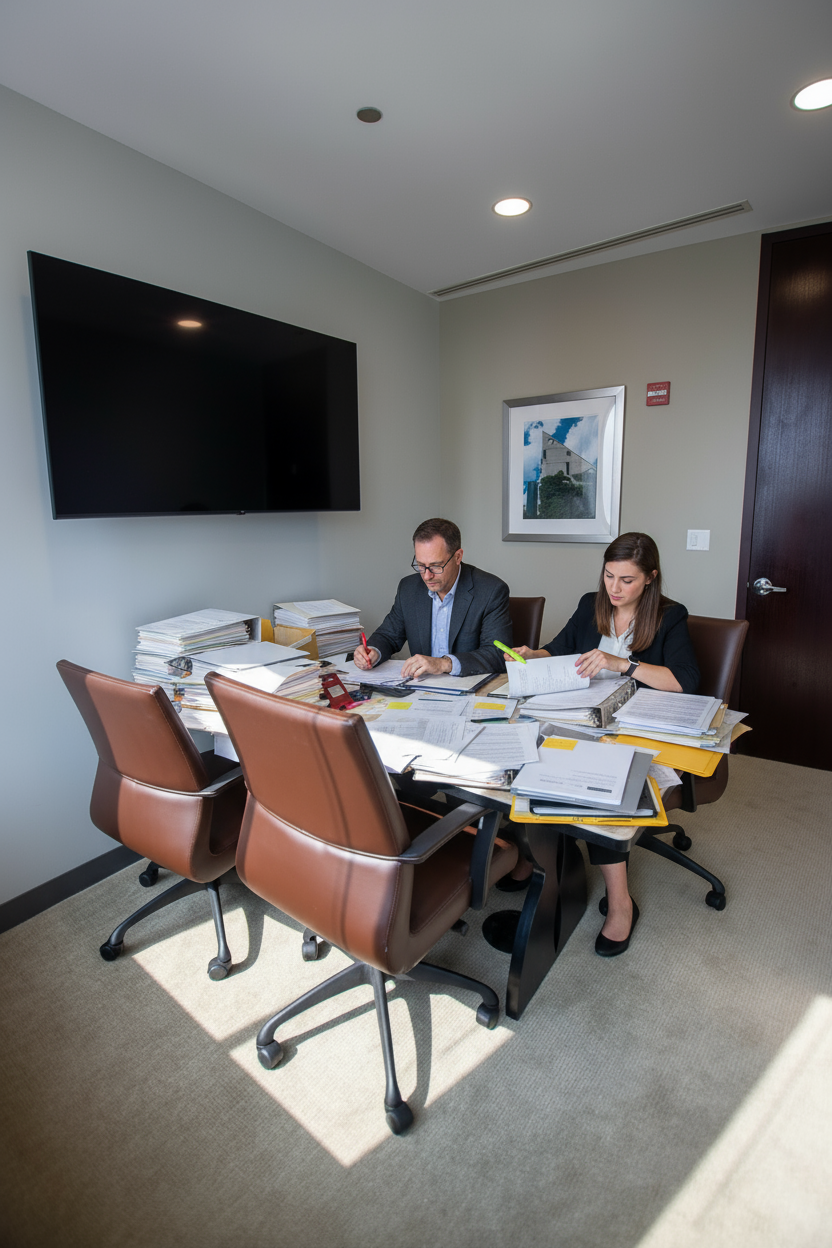The Future of Forensic Accounting and Fraud Investigations
The Evolving Role of Forensic Accounting in a Digital World
Forensic accounting is undergoing a significant transformation as digital transactions and online financial systems become the norm. The profession, once heavily reliant on manual processes and paper trails, is now adapting to the complexities of a digital-first economy. With the rise of e-commerce, mobile banking, and cryptocurrency, forensic accountants must navigate vast amounts of data and uncover fraud in increasingly sophisticated ways.
Technology is reshaping the skills required for forensic accountants to stay ahead. Professionals in this field now need to be proficient in data analytics, cybersecurity, and digital forensics. For example, identifying fraudulent activity in blockchain transactions or tracing funds through decentralized finance (DeFi) platforms requires specialized knowledge. Additionally, forensic accountants must understand the nuances of digital payment systems, such as PayPal, Venmo, and Apple Pay, which are often exploited by fraudsters.
The shift to digital has also introduced new challenges, such as the need to analyze unstructured data from emails, social media, and cloud storage. Forensic accountants must be adept at using advanced tools to sift through this information and identify patterns indicative of fraud. As the profession evolves, the ability to adapt to emerging technologies and stay ahead of cybercriminals will be critical for success.
Emerging Technologies in Fraud Detection
Technology is revolutionizing fraud detection, providing forensic accountants with powerful tools to identify and prevent fraudulent activities. From artificial intelligence to blockchain, these innovations are reshaping the landscape of forensic accounting.
Artificial Intelligence and Machine Learning
Artificial intelligence (AI) and machine learning (ML) are game-changers in fraud detection. These technologies can analyze vast amounts of financial data in real time, identifying anomalies and patterns that may indicate fraudulent behavior. For example, AI algorithms can flag unusual transactions, such as sudden spikes in spending or transfers to offshore accounts, which might otherwise go unnoticed.
Machine learning models are particularly effective at detecting fraud because they improve over time. By analyzing historical data, these models can predict future fraudulent activities and adapt to new schemes. Forensic accountants use AI-powered tools to automate repetitive tasks, such as data entry and reconciliation, allowing them to focus on complex investigations.
One notable application of AI is in credit card fraud detection. Banks and financial institutions use machine learning algorithms to monitor transactions and alert customers to suspicious activity. These systems have significantly reduced fraud losses and improved the efficiency of forensic investigations.
Blockchain Technology and Transparency
Blockchain technology is enhancing transparency in financial systems, making it harder for fraudsters to manipulate data. As a decentralized ledger, blockchain records every transaction in a secure and immutable manner. This level of transparency reduces opportunities for fraudulent activities, such as double-spending or falsifying records.
Forensic accountants are increasingly leveraging blockchain to trace transactions and verify the authenticity of financial data. For example, in cryptocurrency investigations, blockchain allows professionals to follow the trail of digital assets and identify the parties involved. This capability is invaluable in cases of money laundering and embezzlement.
Moreover, blockchain's smart contract functionality can automate compliance processes, ensuring that transactions adhere to regulatory standards. By reducing human intervention, smart contracts minimize the risk of errors and fraud. As blockchain adoption grows, forensic accountants will play a crucial role in auditing and investigating these systems.
The Rise of Cybercrime and Its Implications for Forensic Accounting
Cybercrime is one of the fastest-growing threats to businesses and individuals, posing significant challenges for forensic accountants. As financial systems become more interconnected, cybercriminals are finding new ways to exploit vulnerabilities and commit fraud.
Common Types of Cyber Fraud
Cyber fraud takes many forms, including phishing, ransomware, identity theft, and business email compromise (BEC). Phishing scams trick victims into revealing sensitive information, such as login credentials or credit card numbers, while ransomware attacks encrypt data and demand payment for its release. Identity theft involves stealing personal information to commit financial fraud, and BEC schemes target companies by impersonating executives or vendors to authorize fraudulent payments.
Forensic accountants must stay vigilant against these threats, as cyber fraud can have devastating consequences for businesses. For example, a ransomware attack can cripple operations, while identity theft can lead to significant financial losses and reputational damage.
Digital Forensics in Fraud Investigation
Digital forensics plays a critical role in combating cybercrime. Forensic accountants use digital forensics techniques to uncover evidence, trace cybercriminal activities, and recover stolen assets. This involves analyzing electronic devices, such as computers and smartphones, as well as examining network logs and email communications.
For example, in a phishing investigation, digital forensics can identify the source of malicious emails and track the flow of stolen funds. Similarly, in ransomware cases, forensic accountants work with cybersecurity experts to decrypt files and trace payments made to attackers. By combining technical expertise with investigative skills, forensic accountants are essential in the fight against cybercrime.
Regulatory Changes and Their Impact on Fraud Investigation
Evolving regulations and compliance requirements are reshaping forensic accounting practices. As governments and organizations implement stricter standards to combat fraud, forensic accountants must adapt to new challenges.
Global Standards for Fraud Prevention
International regulatory frameworks, such as the Foreign Corrupt Practices Act (FCPA) and the General Data Protection Regulation (GDPR), play a significant role in shaping forensic accounting methodologies. These standards require businesses to maintain accurate financial records and implement robust fraud prevention measures.
Forensic accountants must stay informed about these regulations to ensure compliance and effectively investigate fraud. For example, GDPR mandates strict data protection measures, which impact how forensic accountants handle sensitive information during investigations.
Industry-Specific Compliance Challenges
Different industries face unique regulatory hurdles in fraud prevention and investigation. For example, the healthcare sector must comply with the Health Insurance Portability and Accountability Act (HIPAA), which governs the handling of patient data. Similarly, financial institutions must adhere to anti-money laundering (AML) regulations to prevent illicit activities.
Forensic accountants must tailor their approaches to meet these industry-specific requirements. This involves understanding the nuances of each sector and developing strategies to address compliance challenges.
The Growing Importance of Ethical Practices in Forensic Accounting
Ethics are the cornerstone of forensic accounting, ensuring integrity and transparency in fraud investigations. As technology becomes more prevalent, ethical considerations are more important than ever.
Balancing Technology and Human Judgment
While automated systems are invaluable in fraud detection, they are not infallible. Forensic accountants must balance the use of technology with human judgment to ensure accurate and ethical investigations. For example, AI algorithms may flag false positives, requiring professionals to verify findings and avoid wrongful accusations.
Ethical practices also involve protecting the privacy of individuals and businesses during investigations. Forensic accountants must handle sensitive information responsibly and adhere to legal standards.
Building Trust in Fraud Investigations
Trust is essential in forensic accounting, as stakeholders rely on professionals to uncover the truth and resolve disputes. Ethical practices help build this trust, ensuring the credibility of findings and fostering collaboration. Forensic accountants must maintain impartiality and avoid conflicts of interest to uphold their reputation.
Skills and Training for the Next Generation of Forensic Accountants
As forensic accounting evolves, so do the skills required to succeed in the field. Future professionals must develop a combination of technical and soft skills to excel in fraud investigations.
Technical Skills for Modern Fraud Investigation
Technical expertise is critical for forensic accountants, particularly in areas such as data analysis, cybersecurity, and emerging technologies. Professionals must be proficient in using software tools to analyze financial data, detect anomalies, and trace transactions. Knowledge of blockchain, AI, and digital forensics is increasingly important as fraudsters adopt sophisticated methods.
Soft Skills for Effective Fraud Resolution
In addition to technical skills, forensic accountants need strong communication, critical thinking, and problem-solving abilities. These soft skills enable professionals to present findings clearly, collaborate with stakeholders, and resolve disputes effectively. For example, explaining complex financial data to non-experts requires excellent communication skills.
Predictions for the Future of Fraud Investigation
The future of forensic accounting is marked by innovation and global collaboration. As technology advances, the field is shifting toward proactive fraud prevention and international cooperation.
The Shift Toward Proactive Fraud Prevention
Forensic accounting is moving from reactive investigations to proactive fraud prevention measures. This involves using predictive analytics to identify risks and implement safeguards before fraud occurs. For example, AI-powered systems can monitor transactions in real time and alert businesses to potential threats.
Collaboration Across Borders
Global financial fraud requires international cooperation to combat effectively. Forensic accountants are increasingly working with governments, organizations, and law enforcement agencies across borders. This collaboration is essential in cases involving money laundering, tax evasion, and cybercrime.
Contact Turning Numbers Forensic Accounting to discuss your case today.




